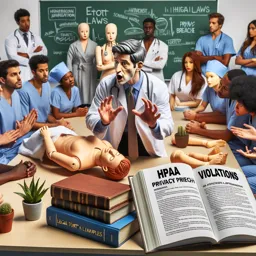Nursing is a diverse and dynamic field that offers numerous specializations, each with its own unique challenges and rewards. Among the most sought-after specializations are pediatrics, geriatrics, and critical care nursing. This article explores these specialized nursing courses, their unique features, and the career opportunities they offer.
Pediatric Nursing
Pediatric nursing focuses on providing healthcare to infants, children, and adolescents. This specialization requires a deep understanding of childhood development, common pediatric illnesses, and effective communication with both young patients and their families.
Key Features:
- Child Development: Courses cover the stages of physical, emotional, and cognitive development in children.
- Pediatric Illnesses and Treatments: Instruction on common childhood diseases, their treatments, and preventive care.
- Family-Centered Care: Emphasis on working with families to support the child’s health and well-being.
Career Opportunities:
- Pediatric Nurse: Working in hospitals, clinics, and private practices to care for young patients.
- School Nurse: Providing healthcare services within educational settings.
- Pediatric Nurse Practitioner: Advanced practice role involving diagnosis and management of pediatric health conditions.
Geriatric Nursing
Geriatric nursing specializes in caring for the elderly population, addressing the complex health needs associated with aging. This field focuses on promoting healthy aging, managing chronic illnesses, and enhancing the quality of life for older adults.
Key Features:
- Aging Process: Understanding the physical and psychological changes that occur with aging.
- Chronic Disease Management: Courses on managing common chronic conditions in the elderly, such as diabetes, arthritis, and heart disease.
- End-of-Life Care: Training in palliative care and supporting patients and families during the end-of-life phase.
Career Opportunities:
- Geriatric Nurse: Working in nursing homes, assisted living facilities, and home health care.
- Hospice Nurse: Providing end-of-life care and support to terminally ill patients.
- Geriatric Nurse Practitioner: Advanced practice role involving comprehensive management of elderly patients’ health.
Critical Care Nursing
Critical care nursing involves working with patients who have life-threatening conditions and require intensive monitoring and treatment. This specialization demands high levels of skill, quick decision-making, and the ability to work under pressure.
Key Features:
- Advanced Life Support: Training in techniques such as intubation, defibrillation, and advanced cardiac life support.
- Critical Care Conditions: Courses on managing acute conditions such as sepsis, respiratory failure, and severe trauma.
- Intensive Care Unit (ICU) Protocols: Familiarity with the protocols and procedures specific to ICU settings.
Career Opportunities:
- ICU Nurse: Working in hospital intensive care units to provide round-the-clock care for critically ill patients.
- Emergency Room Nurse: Providing immediate care to patients with acute injuries and illnesses in emergency settings.
- Critical Care Nurse Practitioner: Advanced practice role focusing on the management of critically ill patients.
Conclusion
Specialized nursing courses in pediatrics, geriatrics, and critical care offer diverse career opportunities for those passionate about healthcare. Each specialization provides unique skills and knowledge, catering to different patient populations and healthcare needs. Whether you aspire to care for children, support the elderly, or manage critically ill patients, these specialized courses can help you achieve your professional goals and make a significant impact in the field of nursing.



















